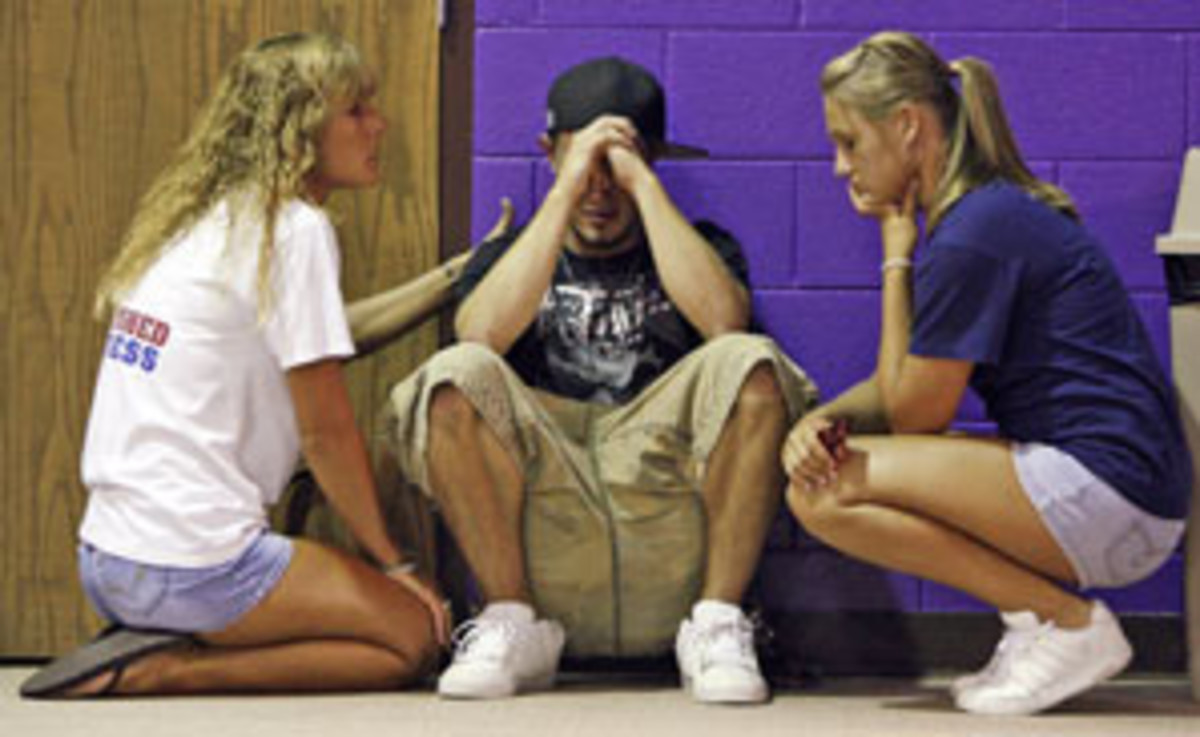Ohio district passes tax levy to bring back athletics, activities
Grove City (Ohio) High assistant principal Thomas Willison stuck out his hand on Sept. 10 and introduced himself. "I'm the athletic director," Willison said. Then he dipped his head. "Well, I used to be the athletic director."
As of today, Willison can direct athletics again. Sports and other extracurricular activities will return to the four high schools in the South-Western City School District after voters narrowly passed a property tax levy that for the past few months has split the community into two distinct camps. According to unofficial results from the Franklin County Board of Elections, 38,769 cast votes. The levy passed by just 413 votes. When voters struck down the levy on its third attempt in August, it failed by 407 votes with a turnout of 32,907. The levy voters approved Tuesday will cost homeowners an addition $227 a year for every $100,000 of assessed value.
The larger turnout likely traces back to the school board's decision to cancel all sports and extracurricular activities and eliminate busing for high schoolers after the levy failed in August. This school year, no football team has played a snap. No band has played a note. Had the levy failed, South-Western, the sixth-largest district in Ohio, would have been the largest U.S. school district to eliminate athletics.
The decision to cut sports and busing infuriated opponents of the levy, who argued that the school board was holding students hostage in an attempt to squeeze more tax dollars from citizens. Terry Jones, the leader of South-Western Alternative to Taxes, said the gambit was nothing short of extortion. "The only reason the community caved in and voted yes was that their kids were threatened," Jones said. Fred Van Order, a retired Grove City resident who also helped lead the fight against the levy, said Wednesday that the result may set a dangerous precedent. "I'm disappointed the tactics worked," Van Order said. "I'm worried other school boards will try this."
District leaders argued that after cutting $22 million from the budget and 350 jobs in the past three years, they had little else to cut and had to chop sports and clubs. This terrified parents, teachers and students. If the district was willing to cut sports, what would be next? Some worried a levy failure would prompt draconian cuts, which would prompt an exodus of families from the district and cause property values to plunge. "This community is going to die," Grove City High football coach Matt Jordan said in September. "That's the big fear."
For the parents and students gathered at a Grove City church to watch the election results roll in, Tuesday night did not begin well. "No" votes outnumbered "yes" votes by almost 1,400 in absentee ballots cast prior to Tuesday. Then, as luck would have it, the first precincts to report results were from areas that traditionally oppose levies. Suddenly, "yes" voters were looking at a deficit of several thousand votes. Then, the pro levy precincts began reporting results.
"The most amazing thing just happened," said a thrilled Mike Mayers at about 9:45 p.m. Tuesday. Mayers, who would have been the quarterback at Grove City this season, had helped lead a group of students that spent the past two months campaigning for the levy. When he called Tuesday night, he had just watched the gap close to about 55 votes.
Levy supporters and opponents would have to wait a few more hours for the results. The printers on four voting machines malfunctioned, and technicians had to fix the machines before the votes could be counted. "It was chaos down there," said Mark Mayers, Mike's father and a leader of pro-levy group Citizens for South-Western City Schools.
At about 1 a.m., all the votes were counted. Pro-levy supporters rejoiced. At a noon meeting Wednesday, the school board is expected to restore extracurricular activities on a pay-to-participate basis. Each athlete will have to pay $150 to play each sport, with a cap of $500 per family. Mark Mayers said schools would hold open gyms on Wednesday. Tryouts for winter sports begin Friday.
Van Order said he hopes the Ohio High School Athletic Association will allow South-Western athletes who transferred to other districts to come back and play for their hometown teams without a penalty. Typically, those athletes would have to sit out a year after transferring.
The elder Mayers said that barring a cut in funding by the state government, he doesn't expect another levy on the ballot for at least four years. Van Order wasn't so optimistic. "They're going to come back in two or three years," he said.
For now, students will go to work rebuilding their teams, bands and clubs. The adults will try to mend relationships torn during the bitter fight. Mark Mayers said he doesn't think the levy will solve all of South-Western's issues, but he hopes it's a start. "I won't say 'saved it,'" Mayers said, "but it certainly will help put the town back together."






